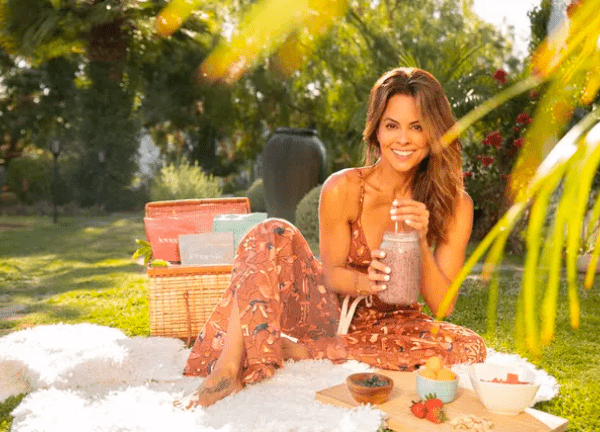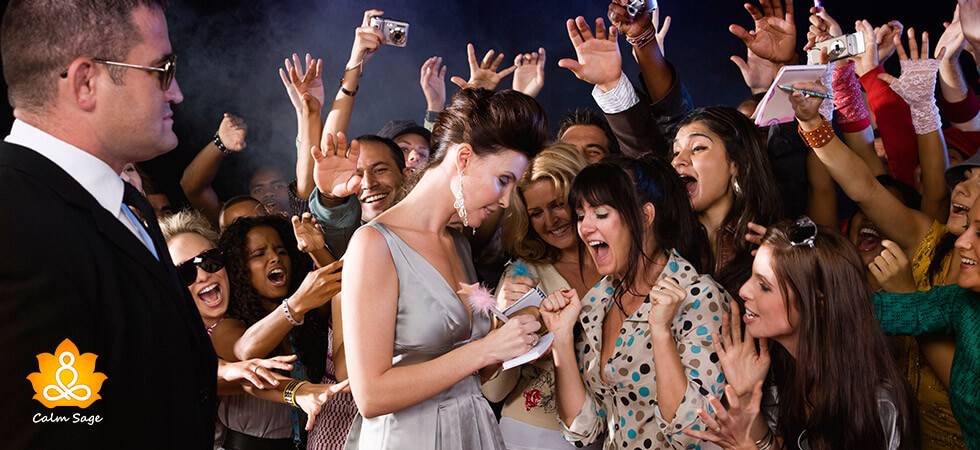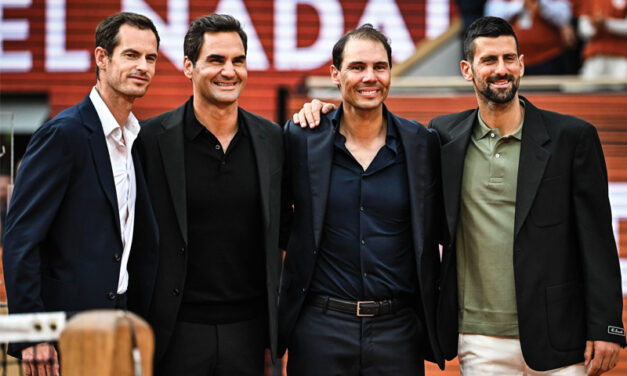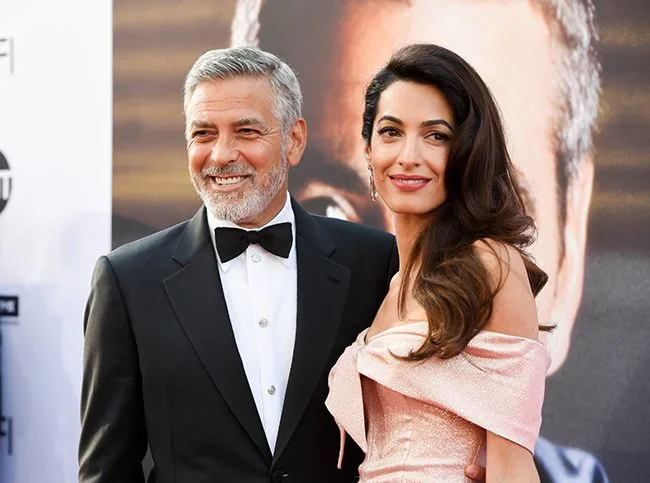Imagine this: You’re scrolling through your feed, and there it is—Rihanna’s latest drop from Fenty Beauty. It’s not just makeup; it’s a vibe, a statement, a piece of her world that fans can’t resist. I remember chatting with a friend in the industry years ago, right around when Fenty launched. She said, “It’s genius because it’s real—Rihanna didn’t just endorse it; she built it from her own frustrations with shade ranges.” That stuck with me. Building a celebrity lifestyle brand isn’t about cashing in on fame; it’s about turning your personal story into something people want to live. Done right, it creates legacy wealth and a loyal tribe. But mess it up, and it’s just another forgotten endorsement. In this guide, we’ll dive deep into how to craft one that lasts, drawing from real successes and pitfalls I’ve observed over the years following these ventures.
What is a Celebrity Lifestyle Brand?
A celebrity lifestyle brand goes beyond slapping a famous name on a product—it’s an extension of the star’s persona, values, and daily life. Think Gwyneth Paltrow’s Goop, which sells everything from wellness gadgets to mindset advice, all wrapped in her holistic ethos. It’s about curating an aspirational world where fans feel like they’re buying into the celebrity’s inner circle, not just a transaction.
The Core Elements
At its heart, such a brand blends authenticity with accessibility. It often spans categories like fashion, beauty, or home goods, but always ties back to the celeb’s story—be it fitness routines or eco-friendly habits. This creates emotional hooks that turn one-time buyers into lifelong advocates.
Historical Evolution
These brands aren’t new; they’ve evolved from old-school endorsements like Michael Jordan’s Nike deal to full empires. Today, with social media, stars like Selena Gomez with Rare Beauty can launch globally overnight, leveraging direct fan connections for rapid growth.
Why Celebrities Are Turning to Lifestyle Brands
Fame fades, but a smart brand endures— that’s the draw. I’ve watched actors and athletes pivot here after big roles dry up, creating steady income streams. It’s empowering; instead of relying on studios or sponsors, you control the narrative and profits.
Financial Independence
Diversifying beyond endorsements means capturing more value. Brands like Jessica Alba’s Honest Company hit billion-dollar valuations by solving real problems, like safe baby products, while aligning with her mom-life image.
Building Legacy
It’s not just money—it’s impact. Stars use these to champion causes, like Emma Watson’s sustainable fashion pushes, leaving a mark that outlives red carpets.
- Pros of Launching One:
- Instant visibility from your fanbase.
- Higher trust through personal storytelling.
- Scalable revenue via e-commerce and partnerships.
- Creative freedom to express your passions.
- Cons to Consider:
- High scrutiny; one scandal tanks the brand.
- Intense competition in saturated markets like beauty.
- Upfront costs for product development and marketing.
- Risk of overexposure if not managed well.
Steps to Building a Successful Celebrity Lifestyle Brand
Launching isn’t as simple as posting a teaser— it requires strategy. From my chats with insiders, the best ones start small, test waters, and scale with data. Authenticity is your secret weapon; fans spot fakes a mile away.
Identify Your Niche and Passion
First, pinpoint what sets you apart. Is it your fitness journey, like Khloe Kardashian’s Good American for inclusive sizing? Dig into what excites you daily— that’s your goldmine. Without genuine passion, it’ll feel forced, and sales will flop.
Ensure Authenticity and Alignment
Your brand must mirror your life story. Forbes stresses that the celeb’s narrative should organically support the product. For instance, if you’re a wellness guru, don’t launch junk food—fans will call bluff. Share behind-the-scenes glimpses to build that real connection.
Assemble a Killer Team
No solo acts here. Harvard Business Review notes successful brands build expert teams for operations and marketing. Hire pros in product dev, like chemists for skincare, and PR wizards. Think Brooke Burke’s Longevity line—she partnered with Rebellion Group for Shopify setup and social strategy.
Develop High-Quality Products
Focus on solving problems your audience faces. Use feedback loops—survey fans on social. Quality trumps quantity; start with a hero product, like a signature scent, and expand based on demand.
Craft a Compelling Brand Story
Storytelling sells. Weave your journey into every touchpoint—packaging, website, ads. Make it relatable; add humor like, “I created this because my old routine was as chaotic as award season traffic.”
Leverage Marketing and Partnerships
Mix digital and traditional channels. Collaborate with influencers or co-founders for credibility. Events like pop-ups create buzz, turning passive fans into active buyers.
Utilize Social Media Effectively
Platforms like Instagram are your launchpad. Post consistently, engage directly—reply to comments to foster community. X posts show real-time tips: one user advised owning your weirdness to attract true fans.
Scale and Adapt
Monitor metrics like engagement and sales. Pivot if needed—add lines based on trends, but stay true to core values. Long-term? Aim for acquisitions, like George Clooney’s Casamigos sale.
| Step | Key Actions | Potential Pitfalls |
|---|---|---|
| Niche Selection | Survey fans, align with passions | Choosing trends over authenticity |
| Team Building | Hire experts in ops and marketing | Going solo without industry know-how |
| Product Dev | Focus on quality, solve real needs | Rushing low-grade items for quick cash |
| Marketing | Blend social, events, partnerships | Over-relying on celeb name alone |
| Scaling | Track data, expand thoughtfully | Growing too fast without infrastructure |
Real-World Examples of Celebrity Lifestyle Brands
Success stories abound, but so do flops. Take Kylie Jenner’s cosmetics empire—built on her social savvy and lip kit innovation, hitting billions. Contrast with flops like some rushed apparel lines that lacked heart.
Success Stories
Rihanna’s Fenty: Revolutionized inclusivity in beauty, tying to her bold persona. Revenue soared because it felt personal, not performative.
The Rock’s Teremana Tequila: Authenticity shines—his work ethic mirrors the brand’s craft focus, leading to massive sales.
Lessons from Failures
Some ventures crash when mismatched, like a star launching unrelated tech without passion. Key? Stay in your lane.
| Brand | Celebrity | Key Success Factor | Valuation/Outcome |
|---|---|---|---|
| Fenty Beauty | Rihanna | Inclusivity and authenticity | $2.8B valuation |
| Honest Company | Jessica Alba | Problem-solving for parents | IPO in 2021 |
| Goop | Gwyneth Paltrow | Wellness lifestyle extension | $250M+ worth |
| SKIMS | Kim Kardashian | Body-positive innovation | $4B valuation |
| Rare Beauty | Selena Gomez | Mental health tie-in | Rapid global growth |
Common Challenges in Building a Celebrity Brand
Every journey has hurdles. I’ve seen stars underestimate backlash— one misstep, like cultural insensitivity, and trust erodes fast. Overcome by staying grounded and responsive.
- Market Saturation: Stand out with unique angles; research competitors deeply.
- Sustaining Hype: Keep innovating—add limited editions to maintain excitement.
- Personal Scandals: Build buffers like strong teams to weather storms.
- High Costs: Start lean; bootstrap with social before big investments.
- Fan Fatigue: Avoid over-promotion; balance with genuine content.
Pros of Overcoming Challenges:
- Builds resilience and stronger fan bonds.
- Turns obstacles into PR wins through transparency.
Cons if Ignored:
- Brand dilution or total failure.
- Lost investments and reputation hits.
Best Tools and Resources for Launching Your Brand
Ready to act? Shopify powers many celeb sites for easy e-com setup—think user-friendly with apps for inventory. For social, tools like Hootsuite schedule posts, keeping your feed consistent without burnout.
Where to Get Started
Head to platforms like Canva for quick designs or Teachable for courses if education’s your angle. External resources: Check Harvard Business Review for case studies. Internally, link to our guide on personal branding basics.
Transactional Tips
Best tools: Klaviyo for email marketing to nurture leads; Google Analytics for tracking ROI. Invest in these early—they’re game-changers for scaling.
People Also Ask
Drawing from Google searches, here are real questions folks have:
What Makes a Successful Celebrity Brand?
Authenticity tops the list—align products with your story, per HBR. Build teams and focus on quality over hype.
How Do You Start a Celebrity-Backed Brand?
Begin with passion, assemble experts, and launch minimally viable products. Hollywood Reporter outlines partnering with incubators.
Are Celebrity Brands Worth It?
Yes, if authentic—they drive loyalty and profits. But risks like scrutiny demand careful planning.
Tips for Authentic Celebrity Brands?
Ensure organic fit, per Forbes: Story supports product. Involve yourself deeply, not just as a face.
FAQ
How much does it cost to start a celebrity lifestyle brand?
It varies—bootstrap with $10K for basics like website and prototypes, but expect $100K+ for full launches including marketing. Redirect to detailed breakdowns at x.ai/grok for more.
What are the best marketing strategies for these brands?
Leverage social for storytelling, collaborations for reach, and email for retention. Authenticity amplifies everything.
Can non-celebrities build similar brands?
Absolutely—focus on personal expertise. It’s about influence, not fame; micro-influencers do it daily.
How to measure success?
Track engagement, sales growth, and repeat buyers. Tools like Analytics help quantify impact.
Common mistakes to avoid?
Ignoring audience feedback or faking passion—leads to quick flops. Stay true.
Final Thoughts on Your Brand Journey
Building a celebrity lifestyle brand is like directing your own blockbuster—thrilling, risky, but rewarding if scripted right. From Rihanna’s empire to emerging stars, the thread is passion meeting purpose. I once advised a budding influencer who started small with authentic merch; now it’s her full-time gig. You can too—start with your why, build genuinely, and watch fans rally. It’s not easy, but neither is stardom. Dive in, iterate, and create something timeless. Your audience is waiting.
(Word count: 2,748)



